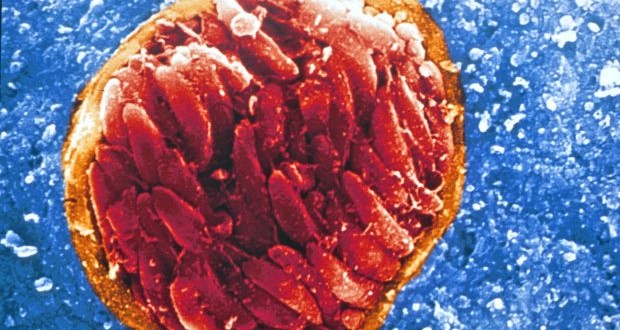A common parasite found in pet cats could be responsible for road rage incidents, according to new research.
Toxoplasma gondii is a tiny, single-celled parasite common in pet cats and, according to a University of Chicago study, doubles the chances of developing a mental condition that triggers uncontrollable anger.
In a study involving 358 adult subjects, a team led by researchers from the University of Chicago found that toxoplasmosis, a relatively harmless parasitic infection carried by an estimated 30 percent of all humans, is associated with intermittent explosive disorder and increased aggression.
“Our work suggests that latent infection with the toxoplasma gondii parasite may change brain chemistry in a fashion that increases the risk of aggressive behavior,” said senior study author Emil Coccaro, the Ellen. C. Manning Professor and chair of Psychiatry and Behavioral Neuroscience.
“However, we do not know if this relationship is causal, and not everyone that tests positive for toxoplasmosis will have aggression issues,” Coccaro said, adding that additional studies are needed.
Intermittent explosive disorder refers to recurrent, impulsive, problematic outbursts of verbal or physical aggression that are disproportionate to the situations that trigger them. IED is thought to affect as many as 16 million Americans—more than bipolar disorder and schizophrenia combined.
As part of their pioneering research to improve diagnosis and treatment for IED and impulsive aggression, Coccaro and his colleagues examined possible connections to toxoplasmosis, an extremely common parasitic infection. Transmitted through the feces of infected cats, undercooked meat or contaminated water, toxoplasmosis is typically latent and harmless for healthy adults. However, it is known to reside in brain tissue, and has been linked to several psychiatric diseases, including schizophrenia, bipolar disorder and suicidal behavior.
The research team recruited 358 adult subjects from the United States, who were evaluated for IED, personality disorder, depression and other psychiatric disorders. Study participants were also scored on traits including anger, aggression and impulsivity. Participants fell into one of three groups. Roughly one third had IED. One third were healthy controls with no psychiatric history. The remaining third were individuals diagnosed with some psychiatric disorder, but not IED. This last group served as a control to distinguish IED from possible confounding psychiatric factors.
HOLD ONTO YOUR CATS
The research team found that IED-diagnosed group was more than twice as likely to test positive for toxoplasmosis exposure (22 percent) as measured by a blood test, compared to the healthy control group (9 percent).
Around 16 percent of the psychiatric control group tested positive for toxoplasmosis, but had similar aggression and impulsivity scores to the healthy control group. IED-diagnosed subjects scored much higher on both measures than either control group.
Across all study subjects, toxoplasmosis-positive individuals scored significantly higher on scores of anger and aggression. The team noted a link between toxoplasmosis and increased impulsivity, but when adjusted for aggression scores, this link became non-significant. This finding suggests toxoplasmosis and aggression are most strongly correlated.
However, the authors caution that the study results do not address whether toxoplasmosis infection may cause increased aggression or IED.
“Correlation is not causation, and this is definitely not a sign that people should get rid of their cats,” said study co-author Royce Lee, associate professor of psychiatry and behavioral neuroscience. “We don’t understand the mechanisms involved—it could be an increased inflammatory response, direct brain modulation by the parasite, or even reverse causation where aggressive individuals tend to have more cats or eat more undercooked meat. Our study signals the need for more research and more evidence in humans.”
Coccaro and his team are now further examining the relationship between toxoplasmosis, aggression and IED. If better understood, this connection may inform new strategies to diagnose or treat IED in the future.
“It will take experimental studies to see if treating a latent toxoplasmosis infection with medication reduces aggressiveness,” Coccaro said. “If we can learn more, it could provide rational to treat IED in toxoplasmosis-positive patients by first treating the latent infection.”
Agencies/Canadajournal
 Canada Journal – News of the World Articles and videos to bring you the biggest Canadian news stories from across the country every day
Canada Journal – News of the World Articles and videos to bring you the biggest Canadian news stories from across the country every day



